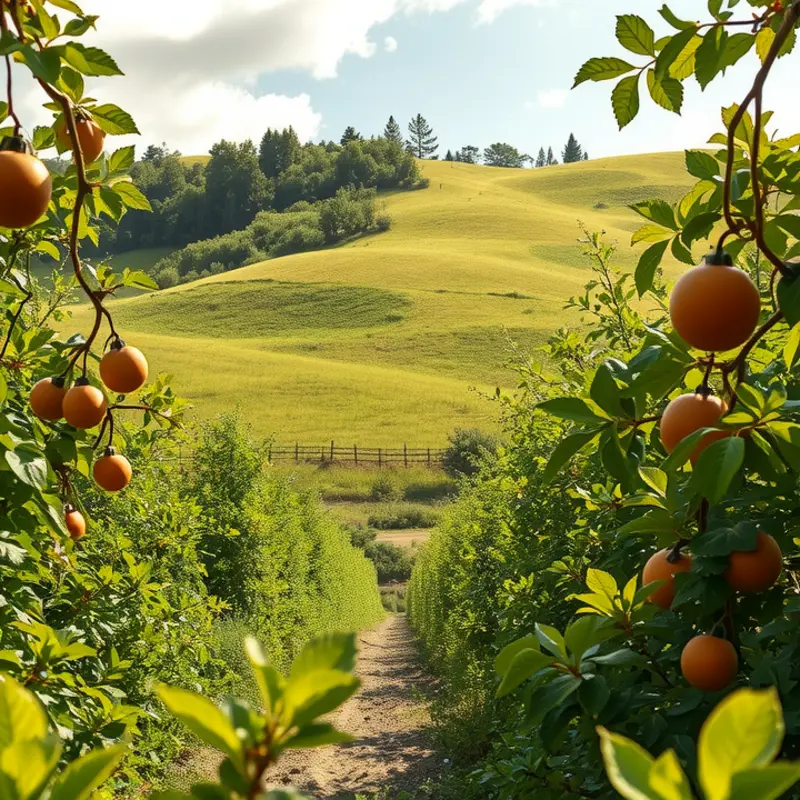Sustainable food practices are crucial for nurturing the environment while enjoying delicious meals. Every choice we make about what to eat impacts our planet. By adopting eco-friendly food habits, we contribute to preserving our ecosystems, supporting local communities, and ensuring healthier lives for ourselves and future generations. Embracing sustainability isn’t just about dietary restrictions; it’s about making informed choices that align with our values and aspirations for a greener world.
Understanding Eco-Friendly Food Choices

Opting for eco-friendly food is integral to fostering a sustainable future. Sustainable food encompasses choices that reduce environmental impact while promoting health. Key factors include food sourcing, seasonality, and mindful consumption.
Food Sourcing is crucial. Choosing locally sourced foods reduces carbon emissions associated with long-distance transportation. Local markets support biodiversity and encourage sustainable agriculture practices. They also provide fresher produce, as shorter distance from farm to table often means better quality and nutrition.
When it comes to seasonal choices, consuming produce that is in season locally is not only tastier but also environmentally beneficial. Seasonal food requires less energy for growth and storage, reducing its carbon footprint. Off-season produce often needs additional resources, such as heated greenhouses, or increased emissions due to importation.
Mindful consumption is about making conscious food choices that favor sustainability. It means understanding the journey of food from production to plate and avoiding waste. For more on minimizing waste during meal prep, you can explore low-waste cooking techniques.
Local and organic agriculture plays a significant role. Organic farming uses methods that reduce chemical use, preserving biodiversity and improving soil health. This form of agriculture often supports richer habitats and pollinator diversity. Although potentially more costly, buying organic when possible contributes directly to environmental preservation.
The environmental impact of processed foods is another consideration. The production of heavily processed foods often involves excessive packaging and resource use, increasing their carbon footprints. These foods require energy-intensive processes and travel long distances, making them less eco-friendly. Limiting processed foods in your diet promotes a healthier planet and personal well-being.
Plant-based diets are gaining recognition for their role in reducing environmental impacts. Plant-based eating requires fewer resources like water and land, and generates fewer emissions compared to animal farming. Studies suggest that shifting towards a diet rich in fruits, vegetables, nuts, and whole grains can significantly decrease greenhouse gas emissions, offering a tangible step towards sustainability.
Adopting eco-friendly food practices requires informed choices and a willingness to adjust habits. Each step, whether sourcing locally, buying seasonally, or reducing consumption of processed foods, contributes to a healthier planet. Mindful eating and thoughtful food choices drive positive change, nourishing the planet along with ourselves.
Practical Steps Towards Food Sustainability

Embracing sustainable eating habits begins with mindful choices and thoughtful planning. One of the most impactful decisions you can make is to buy local produce. By choosing fruits and vegetables grown nearby, you not only support local farmers but also reduce the carbon footprint associated with long transportation routes. Local produce often means fresher, nutrient-rich food that aligns with the seasonality of your region. Seasonal eating maximizes flavor and minimizes energy use on preservation and transportation.
Reducing food waste is a critical component of sustainable eating. Start by planning your meals. By outlining your weekly menu and creating a precise shopping list, you can avoid impulse purchases and reduce food spoilage. Utilize leftovers creatively; a leftover vegetable stir-fry can be transformed into a delightful frittata the next morning.
A plant-forward diet can significantly lower your environmental impact. Incorporating more vegetables, grains, and legumes into your meals reduces reliance on resource-intensive meat production. Experiment with plant-based recipes to find options that satisfy your palate while nourishing your body. For guidance on integrating plant-based foods into your diet, check out this easy plant-based eating guide.
Cooking at home not only saves money but also gives you full control over the ingredients you use. This control can be leveraged to ensure the use of sustainable products. Opt for whole ingredients over processed ones to cut down on packaging waste and energy used in manufacturing. Furthermore, cooking in batches can save time and energy, both in meal preparation and when heating your kitchen appliances.
When dining out, research restaurants that prioritize sustainability. Many eateries highlight their commitment to eco-friendly practices on their menus or websites. These establishments may focus on using locally sourced ingredients, implementing waste reduction strategies, or offering plant-based menu options.
Shopping sustainability extends beyond food choices; it’s also about how we store and preserve our ingredients. Employ eco-smart kitchen storage solutions that extend the life of your produce and perishable items, reducing waste and ensuring that your food remains fresh longer. Consider checking how eco-smart kitchen storage can revolutionize your food storage practices.
By integrating these practical steps into daily life, you contribute to a sustainable food system. Each choice made—whether selecting seasonal produce, reducing waste, or opting for plant-based meals—shapes a greener future for our planet and enhances the well-being of communities around the globe.
Final words
Choosing sustainable food practices is not merely a trend but a vital commitment to our planet’s future. By making informed choices, supporting local farmers, and reducing our environmental impact, we can enjoy nutritious meals while nurturing the Earth. Embrace these practices with confidence, knowing that every small step taken contributes to a larger, more sustainable future. Inspire others in your community to join this journey towards a healthier planet by sharing your experiences and knowledge. Together, we can create a vibrant ecosystem where both people and nature thrive.








